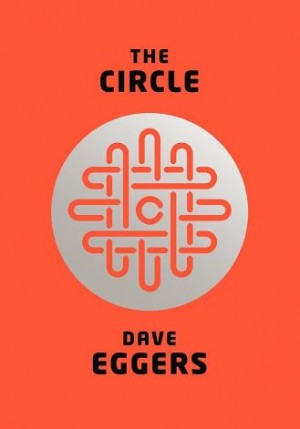You have no items in your cart. Want to get some nice things?
Go shopping
Dave Eggers’ novel about privacy and democracy in the Internet age, The Circle, asks, “If you aren’t being transparent with your personal information, what are you hiding?” Set in the near future, the story revolves around an omniscient tech company called The Circle that wants to digitally record your past, present and future, allegedly in the name of promoting human rights and democracy. Personal data is volunteered freely by the public, and so populist governments and online communities join the march towards total informational transparency. In The Circle, Eggers portends to expose the soft-totalitarian nightmare that waits at the logical end of such thinking – an extreme metaphor about transparency as a virtue, but maybe not extreme enough.
“All that happens must be known.”
The book follows young Mae Holland at work on the company’s sprawling Californian campus. Mae, accustomed to the drudgery and chicken-coop work of a call-centre, finds The Circle’s amenities and open-plan layout initially enticing – what’s more, the company’s medical benefits cover her sick father. The first part of the novel casually introduces this environment, an increasingly odd synergy between upbeat, blue-sky-thinking creatives and the institutionalisation of suspicion, conformity and mutualised invigilation.
The Circle’s digital tools are dominant, ubiquitous and free. An eager public adopts them voluntarily at first, but soon find that they have become mandatory. Privacy is theft. Secrets are lies. Caring is sharing. The company is managed by “Three Wise Men”: Tom Stenton, “world-striding CEO and self-described Capitalist Prime”; Eamon Bailey, the loveable, witty face of the company; and the enigmatic Ty Gospodinov, The Circle’s “boy-wonder visionary” and founder – who himself remains unseen and anonymous. Ty is the brains behind TruYou, a revolutionary system that combines social media profiles, payments, passwords, e-mail addresses and interests into one account. Following TruYou’s success, The Circle develops SeeChange, a surveillance platform where mini-cameras stream footage directly to the company, and then Demoxie, a system making Circle membership and direct democracy compulsory. Mae, along with a number of desperate and popularity-hungry politicians, volunteer to “go transparent”.
Despite flat characterisation and a reliance on overused dystopian tropes, there are many good ideas here on the danger and banality of sharing “intimate trivia”. Eggers is most effective in his critique of contemporary trends through exaggeration: the vapid nexus of social endorsements and the elevation of self-expression as an achievement in its own right. Circlers sound progressive, but this is juxtaposed against an unconscious acceptance of authoritarianism. Their utopianism is delusion: The Circle urges people to share more in order to mine their personal information for commercial and, eventually, political, purposes.
You’re here because your opinions are valued. They’re so valued that the world needs to know them – your opinions on just about everything. Isn’t that flattering?
Do novelists now have to be technologists to write contemporary fiction? Of course not. But intentionally not researching your milieu or inventing more convincing fictional technologies is a failure of craft. For such a contemporary novelist, Eggers’ prose lapses into primness and old-fashioned phrasing that takes some of the edge away from The Circle’s silicon-gloss. The two main opponents to the closing of The Circle are both fairly unappealing, didactic, moralists who spout Eggers’ anti-modern humanism. As with Jonathan Franzen’s miserablism, The Circle is another example of a major contemporary novelist reacting conservatively to modern developments.
Mae is absurdly passive. There is a suggestion that the attitudes behind her desperation to fit in with the public’s eagerness to embrace The Circle eventually lead to totalitarianism. But nobody is that passive. The idea that society is going to the dogs because people post selfies and food porn belies a reactionary contempt for the public. It’s a basic lack of sympathy that disengages with the potential for real human subjects and instead lapses into moralism.
We don’t yet live in a panopticon of co-opted mass surveillance where somebody watches everything we do. The information mined by the NSA and GCHQ has been user-generated for semi-public viewing. But how much freedom should we have over our own data? How public is private? The Circle will make you think twice about how much you do share. After all, sharing is caring. Right?

About Wes Brown
Wes Brown is a writer based in London. He is a Co-ordinator at the National Association of Writers in Education, administrator at Magma Poetry and Director of Dead Ink Books. He is currently writing a novel based on the Shannon Matthew's kidnap and training as a professional wrestler for a book about masculinity and storytelling. His debut novel, Shark, was published in 2013.




